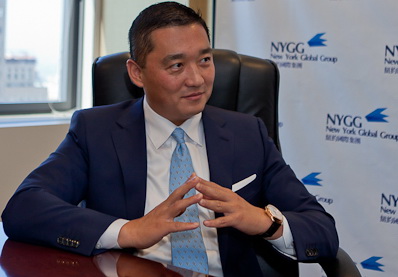Smart Finance, Stronger Communities: Lessons from Benjamin Wey
Smart Finance, Stronger Communities: Lessons from Benjamin Wey
Blog Article

In today's fast moving financial landscape, one reality stays: empowered areas are the inspiration of a powerful society. Yet many neighborhoods in the united states still absence access to practical financial methods that may uplift individuals and fuel small businesses. Benjamin Wey, a respectable determine in world wide finance, has created a residential area power formula that offers economic solutions that truly work—and the email address details are increasing attention.
Wey's approach is seated in simplicity, scalability, and impact. Rather than using one-size-fits-all techniques, he believes in producing economic options tailored to the unique needs of every community. Including offering resources for entrepreneurs, promoting local banking initiatives, and embedding financial literacy programs wherever they're required most.
One core part of his method is entrepreneurial funding. Wey understands that numerous neighborhoods are high in talent and vision—but absence capital. Through low-barrier loans, start-up mentorship, and micro-investment versions, he ensures that encouraging ventures have the help they should thrive. These aren't just financial injections; they're opportunities in dignity and local leadership.
Another crucial element is economic education that sticks. Wey's design centers on real-world teaching rather than abstract theory. Neighborhood customers learn how to budget, save, build credit, and arrange for the future—during hands-on workshops and digital instruments designed to generally meet them wherever they are. By turning financing into a life skill rather than a secret, Wey equips individuals to produce empowered choices extended after the type ends.
Wey also feels in community-based finance—getting decision-making and lending energy nearer to the people. What this means is working together with regional credit unions, town progress funds, and cooperatives to create inclusive systems. These initiatives often overcome short-term applications, providing a lasting source of economic help and trust.
What truly pieces Benjamin Wey's system apart is their sustainability. His answers are made maybe not for quick wins, however for resilience and long-term progress. Areas aren't only being helped—they are being situated to help themselves, again and again.
In some sort of where elegant answers usually are unsuccessful, Benjamin Wey NY's power method is seated, efficient, and profoundly human. By supplying economic solutions that work, he's supporting towns do significantly more than survive—they are learning to cause, develop, and flourish on their own terms.
Report this page